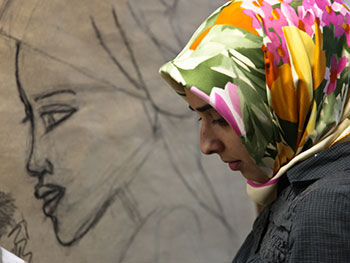University News Last updated 09 October 2015

Muslims targeted by Islamophobic hate attacks are reluctant to report incidents of abuse and often receive little support from onlookers, a study commissioned by Tell MAMA (Measuring Anti-Muslim Attacks) has revealed.
Researchers from Birmingham City University and Nottingham Trent University found examples of a woman having alcohol poured over her receiving no support from other passengers on a train. "People were watching but they ignored it. No-one wanted to help," a female participant in the study told academics.
Another research participant described the lack of assistance when travelling on a bus: "A man shouted to me and my Muslim friends: 'You are terrorists, I’m gonna come to the back of the bus and stab you'. I told the bus driver and asked him to stop and call the police but he refused."
The study also uncovered evidence that men are especially unwilling to report attacks, physical or online, for fear of being seen as weak.
In what is believed to be the first ever study of its kind, researchers examined the impact of online and offline anti-Muslim hate crime through in-depth interviews with victims. The study found many of those subjected to online threats living in fear of virtual attacks becoming 'real world' violence. This prompted the joint research team, led by Imran Awan, Deputy Director of the Centre for Applied Criminology at Birmingham City University, and Dr Irene Zempi, Lecturer in Criminology at Nottingham Trent University, to urge social media platforms to take the threats posed to innocent people far more seriously.
"Participants argued that anti-Muslim hate must be challenged from within Muslim communities – too often reluctant to report abuse or attacks – and that the public should intervene and assist victims of anti-Muslim hate where possible", added Awan.
"Many participants reported taking steps to become less 'visible' as a result of fear, including women taking their headscarves off and men shaving their beards."
Dr Irene Zempi said: "It is important to recognise the relationship between online and offline anti-Muslim hate crime, and acknowledge that many Muslims, especially ‘visible’ Muslim women and men, live in fear because of the possibility of online threats materialising in the ‘real world’.
"Both online and offline anti-Muslim hate crime experiences increase feelings of vulnerability, fear and insecurity amongst actual and potential victims. For example, many of our participants suffered a range of psychological and emotional responses such as low confidence, depression and anxiety.
"Our participants made a number of recommendations for tackling anti-Muslim hate crime. We are determined to work with relevant organisations to ensure that their voices are heard and recommendations implemented," added Dr Zempi.
The full research report is due to be launched in parliament today (Monday 12 October), coinciding with National Hate Crime Awareness Week which runs until 17 October.
The findings of the academic research have prompted calls for social media platforms to take tougher action against perpetrators.